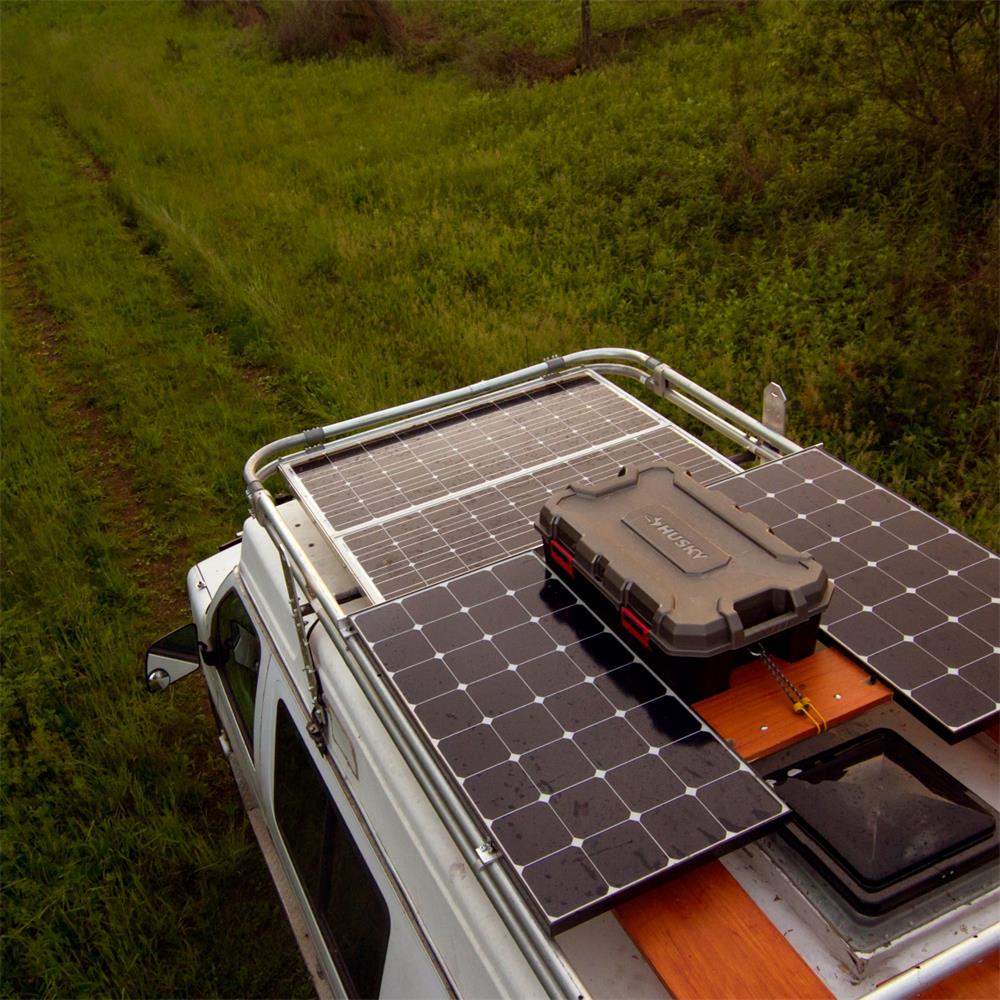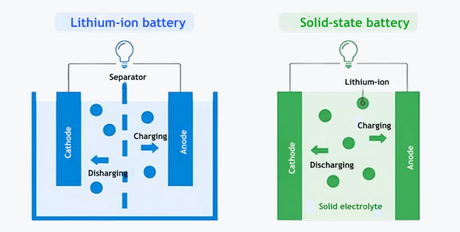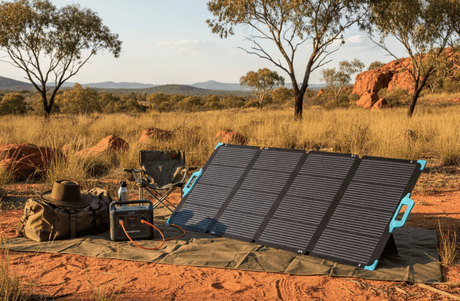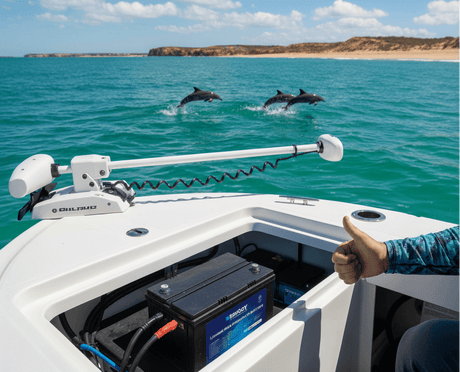Whether you’re living an off-grid lifestyle, travelling in a camper or caravan, or just want to save on monthly utility costs, there’s never been a better time to go solar. Solar installations are an affordable, efficient, and low-maintenance way to meet your energy needs, all while being a sustainable solution. What should you consider when shopping for solar panels? Are they worth the investment?
How do solar panels work?
Solar panels are made up of many solar cells made of silicon and have both a positive and a negative layer, which creates an electric field. When sunlight hits a solar panel, it creates an electric current. Panels are then connected to a charge controller, solar battery, and inverter. Charge controllers limit and monitor how much current goes through a battery. Batteries then store and produce DC power. In order to use household AC appliances, such as blenders, laptops, and phone chargers, an inverter is used to change that power from DC into usable AC power.
What are the benefits of solar?
Solar is cost-effective, sustainable, quiet, reliable, and nearly maintenance-free.
- Solar is cost-effective.
By harnessing power from the sun, you can save thousands on monthly utility costs on a home or cabin. If you’re installing solar panels on a caravan or motorhome, you’ll be saving money on campground and hookup fees.
- Solar is virtually maintenance-free.
Solar panels require minimal cleaning and maintenance. We typically recommend hosing them down at least once a year and keeping them clear of debris, leaves, or snow. Other than that, they pretty much take care of themselves.
- Solar provides freedom to those living or travelling in caravans.

Solar panels on the roof of your caravan or motorhome allows you to recharge your house batteries and run AC appliances without needing to hook up to an external power source. Say goodbye to the days of noisy, dirty gas-powered generators. Solar systems are a much greener option that also happen to be virtually silent.
- Solar is easy.
Lastly, while it may seem intimidating at first, adding solar to your home, boat, van or caravan is actually quite easy. Renogy solar panel kits take the headache out of going solar and ensures all the components of your system are compatible. Once you have the system set up, it’s only a matter of flipping the switch and you can start using that energy collected from your solar panels.
What are the different types of solar panels?
When shopping for solar panels, there’s a few considerations to keep in mind when it comes to the different options available.
- 12V vs 24V Panels
Typically, you’ll find that panels are available as 12 or 24 volts. Most RV’s and boats have 12V battery banks, so people usually stick with the 12V panels in order to be compatible with those. The advantage of using a higher voltage battery bank is that it saves you money in the long run as you need less charge controllers and can use thinner cables for the same amount of power. If you’re installing solar panels on your home and you have energy needs above 1-3KW, go for a 24 volt system.
- Monocrystalline vs Polycrystalline Panels
You’ll also have to choose whether you want monocrystalline and polycrystalline. Polycrystalline panels, which are light blue in color, are less energy and space efficient than monocrystalline panels, but they are also cheaper. Monocrystalline panels, which are darker in color, are more energy efficient. By taking these factors into consideration, you can choose the best panels based on your budget, energy needs, and space.
- Portable vs Roof Mounted Panels
Roof mounted, rigid panels are the most common solar panels on the market and are also the most durable. If you’re looking to mount your solar panels on a non-flat roof,flexible panels are a great option. Roof mounted panels are ideal if you have consistent energy needs, are installing solar for your home, and want to be able to charge your battery bank at the flip of a switch. Portable solar panel kits can be a great solution for those not ready to install a solar system on their roof, have limited space, want to generate solar while both on the open road or at home, or who have smaller energy needs. Portable solar panel systems are typically available as folding suitcase panel kits that can be set up on the ground and angled for maximum efficiency. They are lightweight and easy to handle, making them ideal for those travelling.
How many solar panels will I need?
It’s incredibly important to properly size your solar installation. To determine what size system will best fit your needs, we recommend using the Renogy solar panel calculator. The solar sizing calculator allows you to input information about your lifestyle and appliances used to help you decide on your solar panel requirements. The solar panel calculator will then be able to tell you the minimum and recommended system size, as well as the recommended battery output.
How do I care for solar panels?
One of the great things about solar panels is how little maintenance they require. We encourage you to wash off the panels at least once a year to remove any dirt or other residue that may have collected on the panels. It’s also a good idea to visually examine the panels at that time to make sure all connections are in place and in working condition.
Should I purchase a solar kit?
In order to make going solar as quick and easy as possible, Renogy has a range of solar panel kits that help you take the guesswork out of shopping for solar components. Renogy solar kits include essential components of every solar installation, including panels, a charge controller, cables, and mounting hardware. You’ll just need to purchase a battery bank and inverter to complete your installation.
Conclusion
Solar panels are a great way to become more energy independent, save money on utility costs, eliminate the need for gas-powered generators, and ensure reliable access to energy when you need it. With advancing solar technology and lower costs, there’s never been a better time to go solar.









![What Is a DC to DC Battery Charger [Comprehensive Guide]](http://au.renogy.com/cdn/shop/articles/IMG_3829_bd86de74-31d6-49fd-b9d5-265bb723091d.jpg?v=1757582605&width=460)